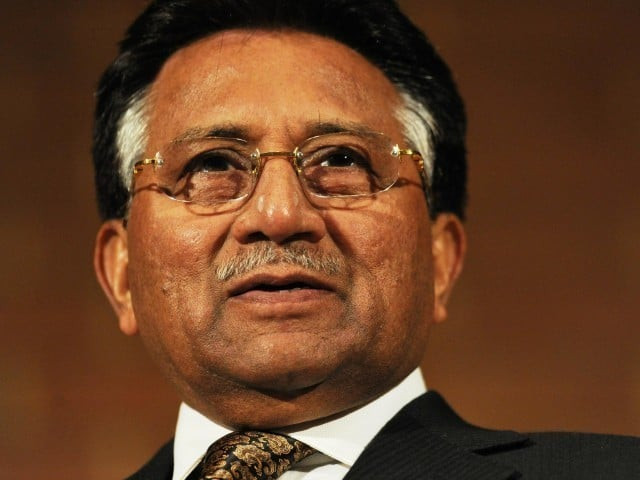Treason trial: Musharraf challenges special court's authority
Musharraf's advocate says he should be tried in a military court.

Former dictator General (retd) Pervez Musharraf. PHOTO: AFP
The government's action against Musharraf under Article 6 of the Constitution is being done with malicious intent, a request submitted by Musharraf's advocate, Khalid Ranjha, stated.
It also stated that the government is pursuing Musharraf's cases to further a political agenda.
Ranjha said that the trial cannot be held in a special court and Musharraf should be tried in a military court under the Army Act.
Musharraf had been summoned at a special court for the treason case on December 24 under Article 6. Interior Secretary Shahid Khan had said that Musharraf had violated the constitution by imposing emergency rule in the country in November 2007.
On December 20, lawyers for the former president had said that a treason charge levied against him was politically motivated and that he would face a “show trial”, urging the United Nations to intervene.
The legal team had also called on the United States, Britain and Saudi Arabia to denounce Musharraf’s trial to “repay their debt” for his support in the US-led “war on terror” in the wake of the 9/11 attacks.
Musharraf overthrew the government of current Prime Minister Nawaz Sharif in a bloodless military coup in 1999 and ruled until 2008. His lawyers had claimed that Sharif is using the treason case to get revenge.
The 70-year-old ex-commando is the first former military dictator in Pakistan’s history to face trial for treason.
Treason case
On November 17, the federal government had decided to initiate treason proceedings against Musharraf.
It had requested the Supreme Court on November 18 to constitute a ‘special court’ for the former dictator’s trial.
Attorney General Munir A Malik had said that there is strong evidence against Musharraf and that he can be sentenced to death or life imprisonment.
The federal government on December 9 finalised a charge-sheet, cataloging five charges against Musharraf including imposing emergency in the country on November 3, 2007, detaining superior courts’ judges and abrogating the constitution by imposing the Provisional Constitutional Order (PCO).
The decision to start this case came after Musharraf was granted bail in criminal cases against him, including the assassination of former premier Benazir Bhutto, slaying of Baloch nationalist leader Nawab Akbar Bugti and Lal Masjid siege.



















COMMENTS
Comments are moderated and generally will be posted if they are on-topic and not abusive.
For more information, please see our Comments FAQ